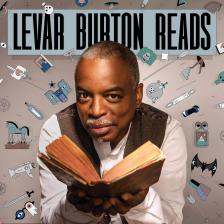
Christians, Jews, and Muslims will all be celebrating religious holidays in the coming weeks, so it seems like a good time to answer questions about religious words.
Do You Capitalize the Word ‘God’?
One of the most common questions people ask about religious words is whether to capitalize the word “god.” The name or title of any specific deity is capitalized just like any other name, so when “God” is used to refer to “the one God” (in other words, in any monotheistic religion), it is capitalized.
For example, you’d capitalize “God” in these sentences:
- Some Christians give thanks to God before every meal.
- Dear God, please let my team win tonight.
When referring to gods in general, though, or when using the word "god" descriptively, keep it lowercase:
- The Romans believed a god named Jupiter ruled the heavens.
- The Greek gods were always causing trouble for humans.
The same rule holds true for Yahweh, Allah, Zeus, and the names of gods in other religions. They’re capitalized.
Why Do Jewish People Write ‘G-d’?
When ‘God’ is a name, it is capitalized.
An interesting side note about the names of gods is that it’s Jewish tradition to avoid writing the name of God because doing so creates a chance that the name could be treated disrespectfully. For this reason, in Jewish documents, you may see the name written as “G-d.”
That’s a simplistic explanation of Jewish religious philosophy and rules—it’s not the whole story—but at least now if you see “G-d,” you’ll have an inkling of an idea of why it’s written that way. You can read more about the Jewish tradition here and here.
Do You Capitalize ‘Godly’?
Hillary M. from Las Vegas wanted to know if she should capitalize the word like “godly” and “godsend.”
"Godly" and other words that start with "god" are almost always lowercase. Occasionally, religious publications choose to capitalize words that start with "god," but a wide variety of style guides I...
Keep reading on Quick and Dirty Tips
from Grammar Girl RSS
https://www.quickanddirtytips.com/education/grammar/do-you-capitalize-god



 If you love words and language, there’s a good chance you love a good story. And this show is full of amazing stories you won’t want to miss.
If you love words and language, there’s a good chance you love a good story. And this show is full of amazing stories you won’t want to miss.



